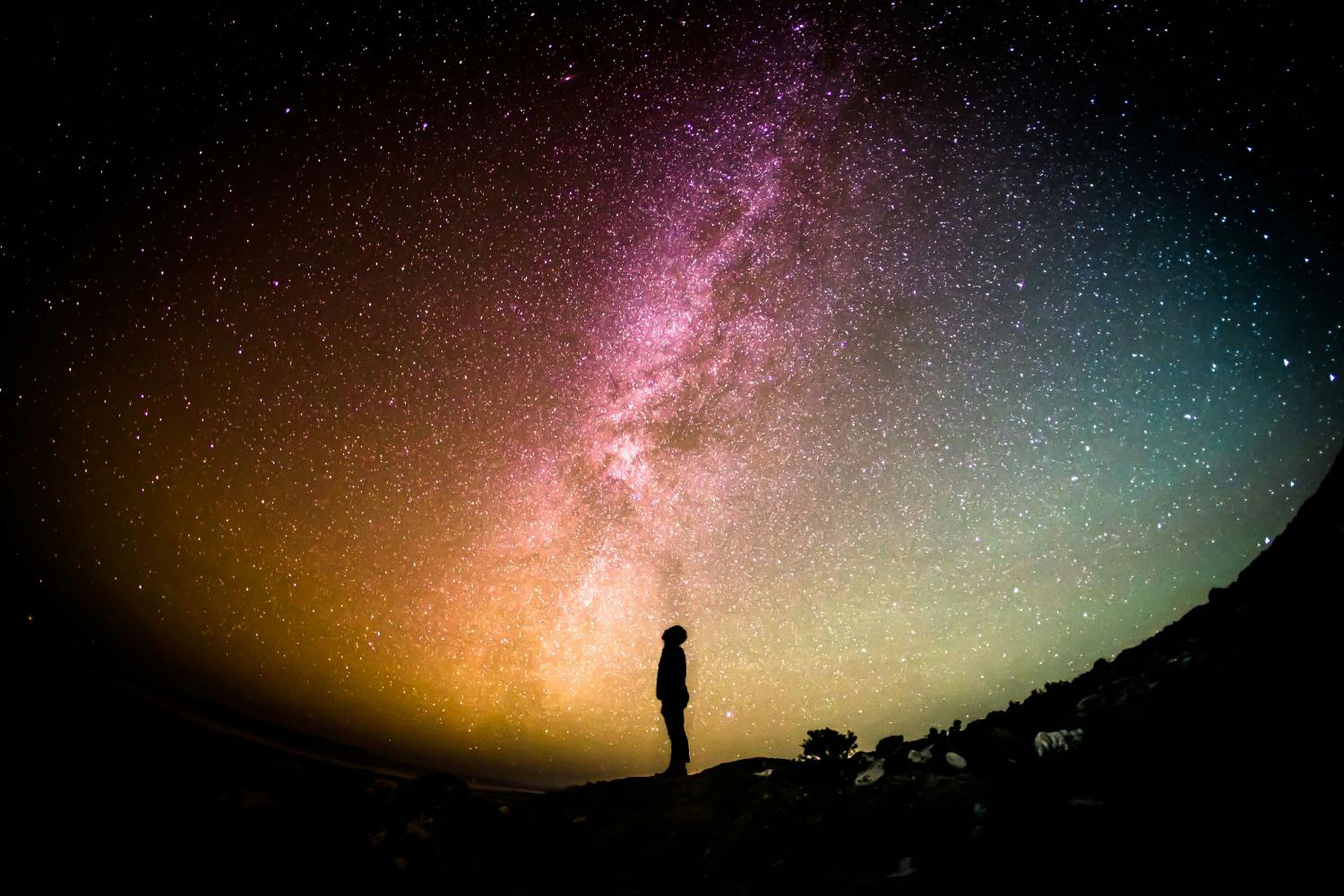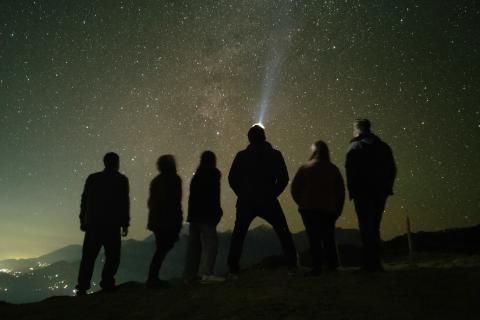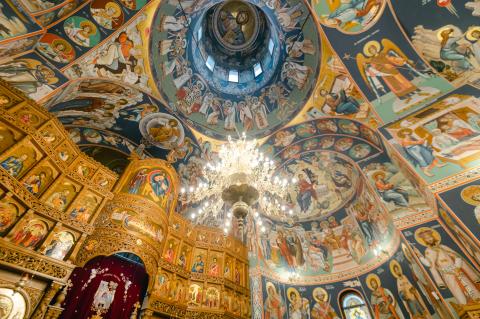
“The new atheism” has met its match in recent months: “the new theism,” a term this article invokes to discuss its snappy title – “How Intellectuals Found God.”
It’s a topic that’s been stirring in the news cycle for a good while now, as stories of sophisticated, composed, hyper-logical figures (those once seen coolly explaining why belief in God was an irrational or deceived position) now emerge with those same figures candidly speaking about their conversions to Christianity or some form of theism. Their discussion often includes bald-faced descriptions of how their decision has made their lives better, richer, more meaningful. And indeed, perhaps one of the most noteworthy parts of their comments is the frankness with which they talk about their experience of God or the supernatural, and the relief and help that’s been for them in their lives. In some ways, such discourse seems a sharp left turn away from the high rationalism that they had so clung to – a giving up of their “public intellectual” pedestal. But that’s a point worth probing: is it a sharp left turn? Have these folks simply set intellectual rigor to one side, with the human wish for a nicer, easier story to live with finally overwhelming even them to give way to these pie in the sky ideas about God? Or is there something rational and not just emotive and sentimental about their being open to these wider dimensions of human life, these experiences that are hard to quite put into words?
In other words, it's worth thinking through what kind of “evidence” all this talk about religious experiences really is. On the one hand, it doesn’t seem like evidence in the way we typically think about the term: as referring to what is scientific, measurable, empirical. But on the other, it does seem like just that kind of “scientific” evidence when one considers that there are measurable, confirmable points of data having to do with it. For instance, we have lots of reasons to think that very many people throughout history and in the world today have claimed to have encountered spiritual realities. It’s a number that’s most certainly in the billions. And it’s not just that such people have happened to believe certain things, the way some might believe that there’s life on other planets. They’ve claimed to experience spiritual things in a way that has led them to think those spiritual presences real.
The dilemma arises in that such experiences come in a lot of different modes, and by their nature they are hard to express except in metaphor. Metaphor is the only means we have to describe what we can’t simply see and measure, such as our emotions, our thoughts, our relationships. The same is true of these experiences, feelings, and recognitions of other presence that are so common to the whole of the human race. One can’t describe what he or she has seen, felt, or heard in terms that would satisfy the chemist. But that doesn’t mean that the experience wasn’t real, just that it partakes of a particular mode of reality. Dreams are this way, too – who would believe someone trying to explain what it was like to dream, except that we all experience it? So with spiritual things in general.
Almost certainly a majority of humans who have been alive have claimed some kind of spiritual experience. It’s noteworthy that the great intellects of the past usually landed as theists – Plato, Cicero, Confucius. And it can’t be that these tough-minded thinkers were just swept up in uncritical intellectual currents. Rather, they were dealing with obvious evidence: if a small minority of people had claimed spiritual experiences, that data might be reasonably discarded, but the sheer number of people who have had them makes discrediting them as merely confusion, psychological delusion, or mistake much more difficult.
Whether Christianity specifically is true will depend on a person’s judgment concerning its claim to be a divine revelation: what that person makes of Jesus, of the Israelite prophetic tradition, of a number of other things. So on this score, to suggest that Christianity is not true is not necessarily to be irrational. But to insist that there is no spiritual world at all is to be anti-scientific, in the fullest sense of that word: dealing intelligently with available evidence.
But, as this article’s suggesting, perhaps this purportedly-scientific, actually-anti-scientific phase of things is beginning to come to a close.
“It’s been a year, 15 months,” Ayan Hirsi Ali said of her conversion to Christianity, “and I still feel almost miraculous.”
“It was deeply transformative,” another writer and environmentalist, once impervious to Christianity, said of his recent baptism. Those like him, he went on, are just “finding their way to something they never expected to find their way back to.”
And a third suggests that all of this was somewhat inevitable in the current, dark cultural climate: “As meaning deteriorates in the modern world, as our value systems and institutions crumble, all of us become increasingly aware that there is this eerily familiar awakening and beckoning figure that we’ve all known all our lives within us and around us.”
To be open to that “eerily familiar awakening,” this “unexpected” wayfinding, this “miraculous” feeling isn’t to give up on level-headed thinking. It’s to open oneself up to realities that very sober thinking already suggests are true. It’s to give up on the dogmatic, hubristic position that refuses to believe the billions of accounts that attest to them. And it’s maybe to experience, oneself, that “miraculous” joy, hope, and love that are a fulfillment of competent thinking, and not its refusal.
In France, plans to enlarge the flourishing monastery of Sainte-Marie de la Garde are based upon millennia-old building styles that have become emblematic of the Christendom culture of the Middle Ages. More details and a few images of the "audacious" plans can be found courtesy of theNational Catholic Register.
The Jordanian Ministry of Tourism and Antiquities has announced a historical exhibit opening in the Vatican City that explores ancient Christianity in Jordan. By interacting with more than 90 artifacts, viewers will be taken through the development of early Christian communities in that region.
To the north of Jordan, Syrian religious leaders met to discuss the country's uncertain future following the toppling of Bashar al-Assad's government. In addition to unease, some Christian leaders expressed hope for the future.
One author reflects on the timeless question: Can humans truly have free will if God is all-knowing (and thus knows the future)?


